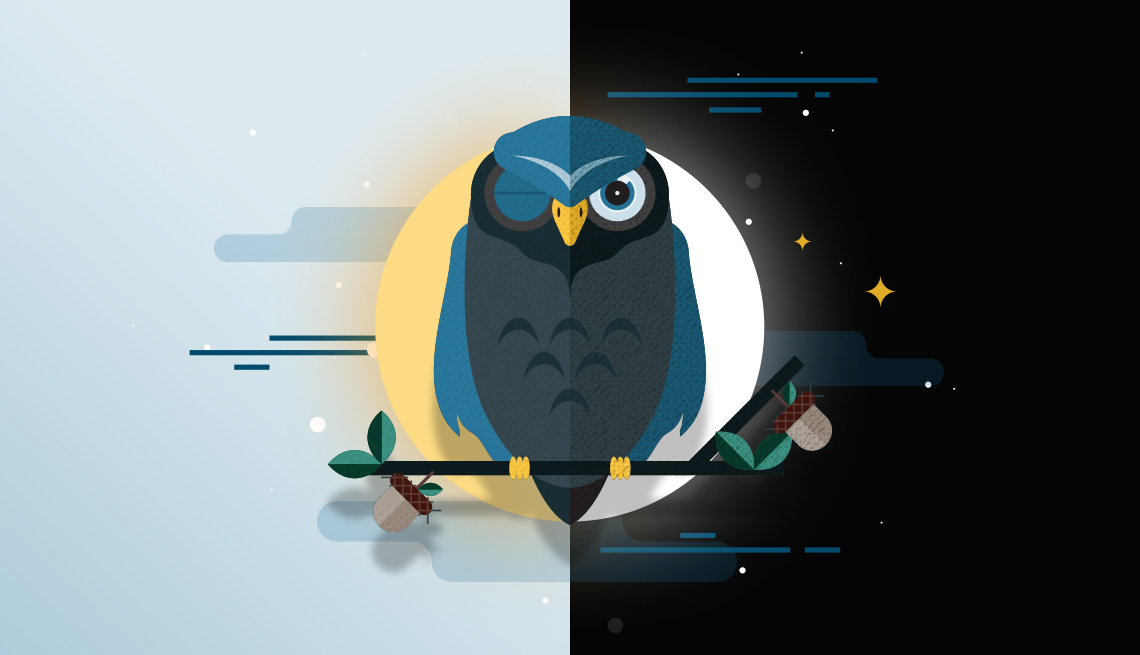Play all audios:
There was a time in human history when my night-owl tendencies were welcomed by the tribe; somebody had to take the late shift looking out for saber-toothed tigers. But now, that whole
early-to-rise spiel is just left over from when humans turned to agriculture and had to work 18-hour days to eke a living from the land. Me, I’ve got Wegmans. What’s more, the fact I get
enough sleep means I don’t nod off in a rocking chair with my mouth open after two beers, unlike certain other parties I could name if I wasn’t interested in my marriage lasting 36 years. As
science delves more deeply into what’s now being termed chronotype diversity, some interesting tidbits have turned up. While it’s true that most humans are early risers — Matthew Walker,
director of the Center for Human Sleep Science at University of California, Berkeley, puts the figure at 40 percent — nearly that many, 30 percent, are latter-day saints like me, with the
other 30 percent falling somewhere in between. This makes the tyranny that society’s larks exert over scheduling even more infuriating. Research confirms that we’re pretty much born with our
internal clocks, and there’s no sense trying to tinker with them. As Rosemary Braun, a Northwestern University biostatistics professor, recently described it, “The clock on the wall isn’t
always a good indication of what time it is for you personally.” To bolster their superiority, early risers like to point to research showing that night owls die earlier, have poorer
memories, suffer more from depression, and drink and smoke more than slugabeds. (Well, duh. Ever try to find a bar at 7 a.m.?) “Delayed sleep phase syndrome” has also been linked to
personality disorders like narcissism and psychopathy. But guess what? The world is changing yet again, shaken by a revolution as profound as that long-ago shift to farming. Globalization
and technology let us bust through time zones. An estimated 80 percent of businesses now offer flexible work hours. (My own 10:30 a.m.-6:30 p.m. day at the office also lets me skirt the
worst of commuting traffic.) Online shopping and meal ordering have made store and restaurant hours increasingly obsolete. And more and more of us work from home, connecting to the office
remotely, with our jammies on if we please. Backed by science, late risers are, um, rising up, albeit more toward noon than at the crack of dawn. Tech entrepreneurs including Mark Zuckerberg
and Alexis Ohanian talk openly and unabashedly about their night-owl tendencies. Schools are experimenting with deferred start times, driven by studies showing that teens do better
scholastically and emotionally on a later schedule. And new research hints that along with all the bad stuff afflicting the chronotypically diverse, night owls are smarter than the rest of
humankind, as well as more likely to take risks. There’s even a new blood test that can pinpoint your personal sleep cycle, to help you better coordinate your inner clock with the world at
large. Which all seems to clearly signal that there’s no longer any reason for us all to march through life in sync. So show some respect, and keep the noise down in the morning, will you?
I’m under the covers, working on being my best self.

